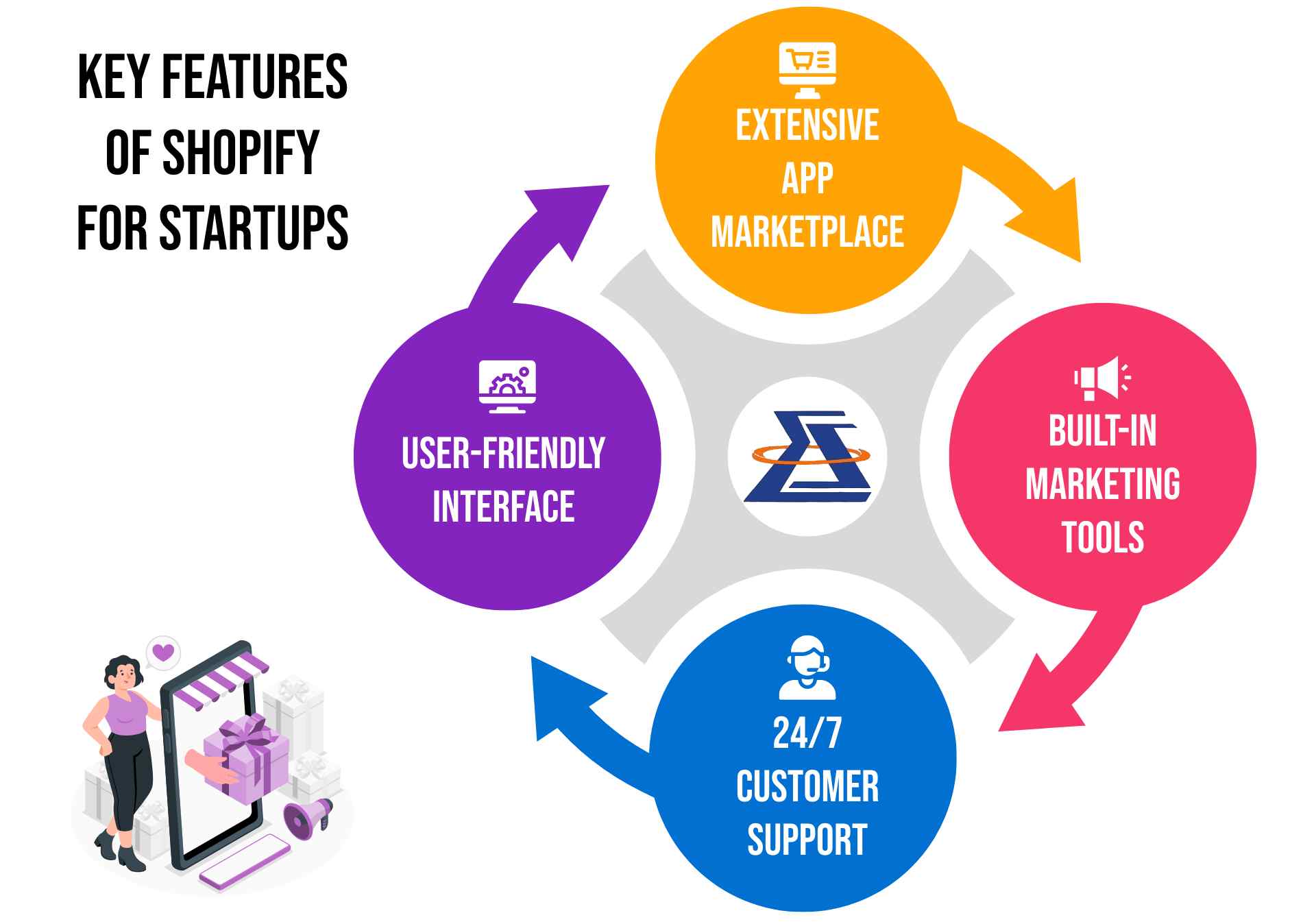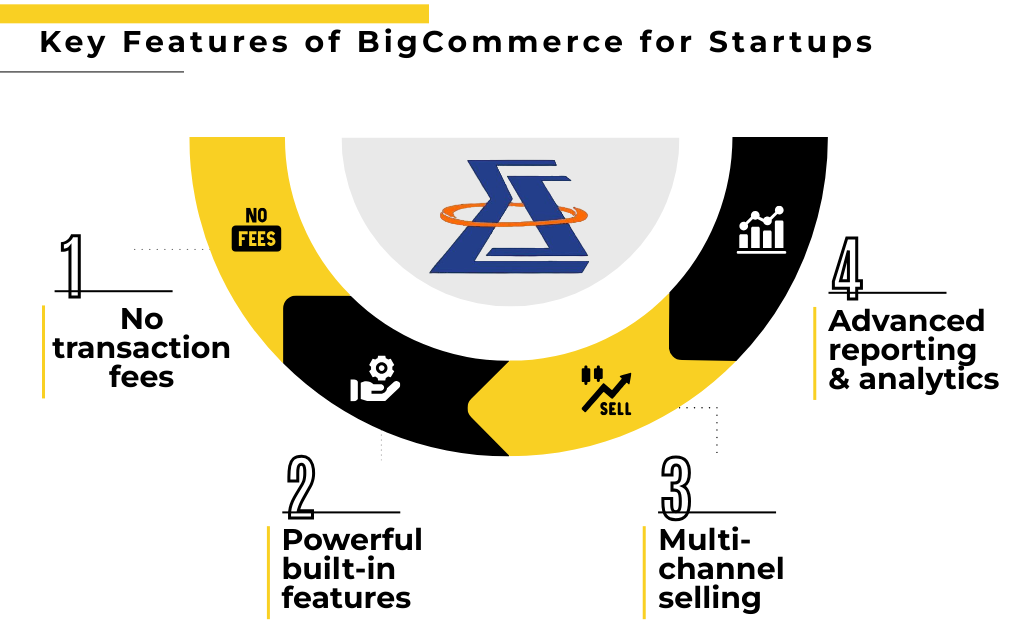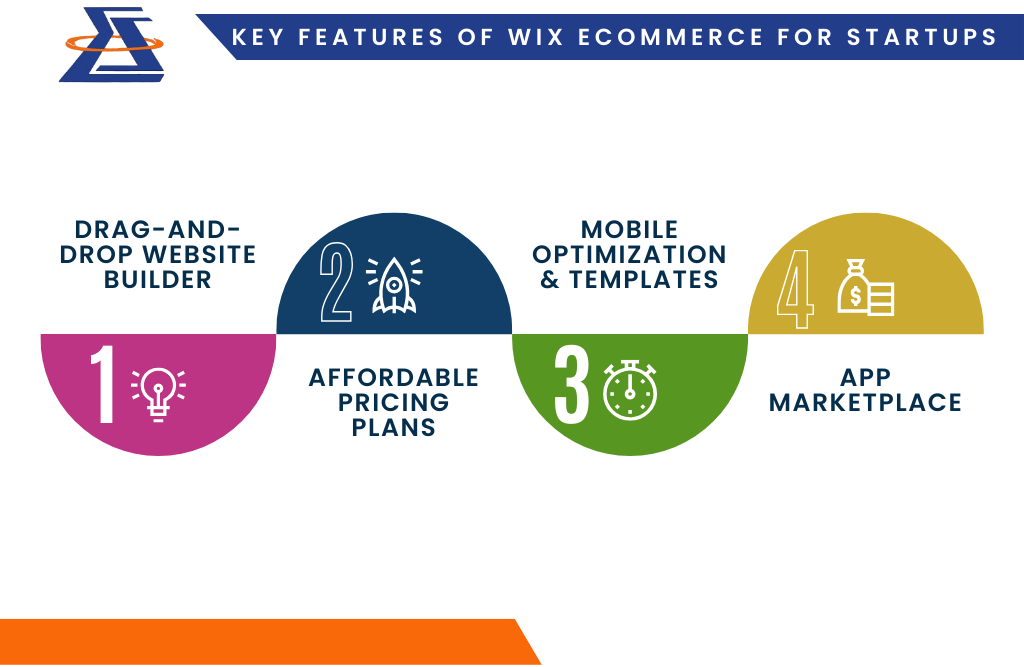Introduction
Just imagine how critical it is to choose the right eCommerce platform for startups when 80% of eCommerce startups in the United States fail due to, obviously, lack of money, but also because the startup guys lack the understanding of the market and target audience.
Therefore, it is inevitable to build effective and robust eCommerce solutions for small businesses. eCommerce startups, unlike top eCommerce platforms, face multiple challenges, including resource constraints and scaling issues, which are common in the digital ecosystem for startups. Choosing a suitable online store platform for startups plays a pivotal role in achieving business goals through the right business processes.
In this blog post, you and I will go through five eCommerce platforms that are highly recommended by the top rated eCommerce website development company in the USA and that are good for startups in 2024, what they are good at, what is wrong with them, and all that in between. This breakdown demonstrates to you just how each platform can and cannot support your startup in order to help you make the best decision when comparing your options.
Top 5 eCommerce Platforms for Startups
Shopify: The Go-To for Scalable Growth
Overview
The first thing that sets Shopify apart is that it is the most accessible eCommerce platform for startups, but it also scales well. Due to its ease of use and coverage of functions, it is highly preferred by businesses regardless of their developmental phase.
Key Features

Easy setup and user-friendly interface:
The interface is very friendly, and anyone can easily navigate around and manage their online store on Shopify with ease.
Extensive app marketplace:
It has a huge number of applications and add-ons available, which makes it easy for startups to extend capabilities or modify their stores based on requirements.
Built-in marketing tools:
Another advantage of Shopify is its ability to incorporate powerful SEO characteristics and analytics data to aid startups in developing an effective strategy online.
24/7 customer support:
24/7 support helps ensure that concerns are addressed promptly so that interruptions to business are lessened and productivity continues uninterrupted.
Why It’s Ideal for Startups
One of the key features where Shopify stands out is the ability and ease to scale up as a business adapts. The mobile responsiveness of its themes and cross-channel selling features, such as social media, help startups stand out in the competitive online selling environment.
Drawbacks
As we have seen, Shopify comes with many advantages; however, like most platforms, it has some disadvantages. Some payment gateways have high transaction fees, and complex design customization can be difficult without the necessity of extra apps or coding skills.
WooCommerce: Customizable and Flexible
Overview
WooCommerce is a WordPress based eCommerce development platform that even a layman can use. It is extremely customizable and highly comfortable to manage. WooCommerce is an open-source platform that is completely easy to configure. Businesses can fine-tune their product catalogs and other settings easily.
Key Features
Open-source and fully customizable:
WooCommerce is an ideal solution for unique business models, as the plugin gives full control over the store’s look and functionality.
Seamless WordPress integration:
Developed for WordPress, WooCommerce takes advantage of the platform, which is well-known to many users by default.
Extensive plugin library:
There are countless plugins available for implementing the functionalities that startups want to offer without having to develop them from scratch.
Low upfront cost:
Since there are no regular monthly costs that businesses have to pay, WooCommerce stands as a cheap venture for these startups.
Why It’s Ideal for Startups
Another advantage that WooCommerce has over other eCommerce platforms for startups is the flexibility that it adapts well to startups that need custom looks or functions. This is especially finding its use for companies that already use WordPress, and it will easily integrate and allow customization.
Drawbacks
For instance, since the platform is open source, startups require technical skills or acquire resources for implementing the platform and maintaining it. This may often result in overall higher costs if external expertise is pertaining to the project.
BigCommerce: This is an all-in-one solution for fast growth
Overview
BigCommerce is an enterprise-level platform. First and foremost, it is designed to build eCommerce solutions for small businesses that are experiencing rapid growth. It comes with attractive features aimed at catering to rapidly growing business outfits.
Key Features

No transaction fees:
Organized from the BigCommerce platform, transaction charges unique to a given platform often reduce startup operating expenses when adopted at scale.
Powerful built-in features:
I especially appreciate powerful SEO tools and enhanced product management functions—there is no need to integrate external applications.
Multi-channel selling:
BigCommerce also fully supports business integration with the most known eCommerce platforms, such as Amazon, eBay, and others, and social networks.
Advanced reporting and analytics:
Strategic data analysis tools enable new generation businesses to make correct decisions and run their affairs efficiently.
Why It’s Ideal for Startups
Startups expecting exponential growth in the near future will find BigCommerce ideal for their business. Some of the advantages I got from using it are that it has many features it offers and the flexibility it offers, meaning that one does not have to use other applications, which could be costly to the business.
Drawbacks
Being comprehensive in its offering, BigCommerce also has higher price tiers for online store platforms for startups than some of its competitors. Maybe this can be a good option for startups with scarce cash during the initial stages of their business.
Magento: Evaluating the best solution for customizing at the enterprise level
Overview
Magento is the top eCommerce platform and is strongly recommended for startups that are willing to invest more or that have a more complicated business model that needs a lot of tweaking. Indeed, it does allow those who have the capital to take advantage of the opportunity that it affords.
Key Features
Open-source with endless customization:
It gives full control over store functionality and appearance, so it’s perfect for custom and intricate installations.
Powerful performance:
One of the program’s strengths is the easy management of large stockpiles and a large number of orders, which is suitable for determined startups.
Robust security and scalability:
Magento has comprehensive features to address security issues and has the capability to expand as you expand your business.
Strong community support:
From the developer’s perspective, a large and active community contributes various resources for problem-solving and extending the functionality of the existing platform.
Why It’s Ideal for Startups
Open sourcing of Magento is another strength since everything is controlled, and features are built from the ground up. This is suitable for startups focused on tech or companies with large technical departments that have the capability to develop it fully.
Drawbacks
It needs a great deal of developmental effort, which shows the platform is not for learners with little programming experience. Do you want to know how to manage and maintain your Magento store? Spend a few months, and you will soon find that a team or an external agency is required for constant attention.
Wix: Easy and Cheap for Newcomers
Overview
If you are a startup, the recommendation we have going forward is for you to consider using eCommerce platforms for startups, such as Wix. Due to its simply designed graphical user interface and its low price, it is helpful to young, passionate entrepreneurs with less coding experience.
Key Features

Drag-and-drop website builder:
The platform offers a convenient editor, so startups don’t need to have coding skills to create an impressive store.
Affordable pricing plans:
Through a selection of the cheapest plans, Wix empowers startup businesses to get an online platform with less money down.
Mobile optimization and templates:
The platform is equipped with an extensive collection of mobile-friendly themes, so stores do homework on various devices.
App marketplace:
To add, the app market on Wix offers further capabilities that help extend the capabilities of startups’ stores as they expand.
Why It’s Ideal for Startups
Wix is ideal for startups who don’t possess specialized skills in the development of websites, who lack plenty of money to spend, and who require its implementation in haste. It has simple and powerful features and interfaces, which allow its users to quickly start fully functional, presentable online stores.
Drawbacks
Wix is simple to use but lacks potential compared to more complex platforms in terms of customization. There is always the possibility that for startups, things may be very simple, and they only need the basic app features; however, as time goes on, things become more complex, which means they have to upgrade to find more features, which costs a lot.
Conclusion
Here, we have the best eCommerce platforms in 2024 for your eCommerce business. Make your decisions based on your startup requirements, current and future technical ability, and growth expectations. They include budget restrictions, scalability requirements, and the need for customization when choosing your preferred bootcamp.
Finally ready to sell online? Check these recommended eCommerce platforms for startups and start creating your store right now! For more guidance, check out our blogs regularly. Contact Sigma Solve for a free consultation on eCommerce solution development at +1 954-397-0800 and gain a deep understanding of building a functional and creative eCommerce platform and marketing tactics to succeed in today’s digitally charged environment.
FAQs
What is the best eCommerce platform for startups with limited budgets?
The best advantage of Wix eCommerce platform lies in its ability to build an eCommerce store without having knowledge of coding as it offers a drag-and-drop process that is convenient for small business owners.
It could be noted that the article does not directly relate to the themes of wholesale eCommerce. However, most people regard Magento as great for B2B and wholesale because of the customization possibility and the application of the multiple-tier prices.
As it will be seen from the subsequent analysis, the article does not mention a platform for clothing. However, Shopify is preferred for fashion because of how it appears, the appearance of templates, and cooperation with various platforms for selling goods.
Dropshipping is still a complex process of order delivery. Shopify on the other hand, helps businesses improve customer journeys and cut the competition with countless dropshipping tools.
BigCommerce shines in the SEO category; the core includes robust built-in SEO tools that do not require additional applications or plugins.
Shopify is the dream store builder for startups due to the following factors; First, it is easy to use or work on, Second, the appearance of the store can also be changed independently, Third, there are many apps and integrated marketing as well and Fourth, there is customer support throughout the year.
Yes, you are free to change your platform as your business expands. However, planning can be a bit tricky and can include data migration depending on the platforms to be migrated.


